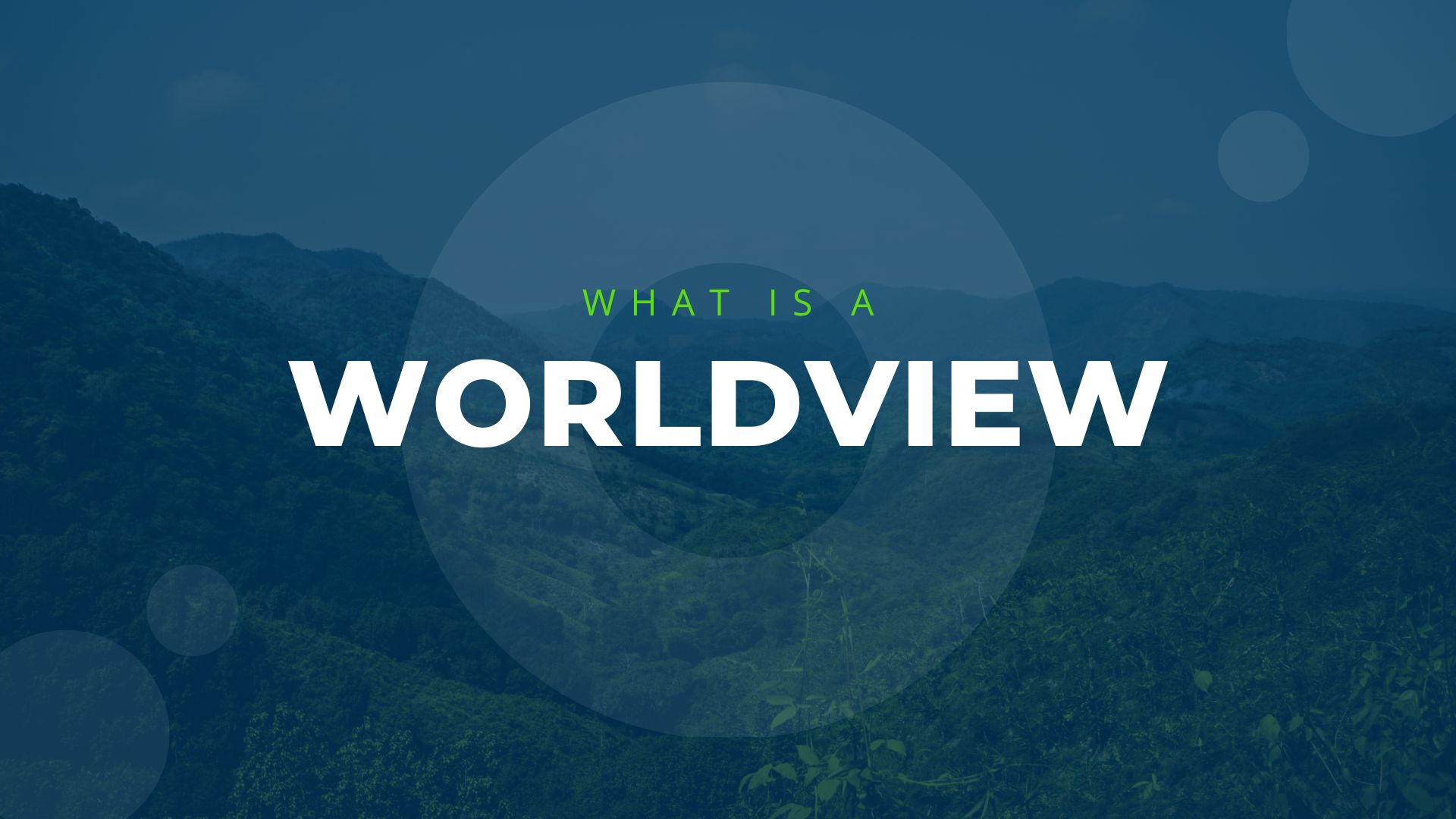What is a worldview?
A worldview is more than just your point-of-view; It’s the set of beliefs and assumptions that shapes how you see the world.
And everyone has a worldview.
Webster’s Dictionary describes it as a “comprehensive conception or apprehension of the world especially from a specific standpoint.”
A worldview attempts to answer questions like:
- Why am I here?
- How did the world begin?
- Is God real? If so, what does He require of us?
- How should we treat other people?
- What is right and what is wrong?
Why is a worldview important?
Whether you realize it or not, your worldview governs how you live your life.
For example, if you believe there is a God who is all powerful and will hold us accountable for what we do in this life, you’ll live in a very different way from someone who believes there is no God and that humans determine what’s true for themselves.
And this is because you see the world in a way that the atheist does not. You may look at the complexities of the world, its natural beauty and the stars in the sky and see a powerful, intelligent being who made them on purpose.
The atheist may look at the same things and see a different picture – perhaps one of temporary beauty out of random chance.
Our worldview affects how we look at everything, from relationships, to society, to the government, to God.
It’s that view of the world around you that will direct the daily decisions you make.
Dr. Jeff Myers puts it this way,
“What we believe about God, the world, and ourselves subtly affects the ten to twenty thousand decisions we make every day…[O]ver time, decisions metastasize into habits. If those decisions are bad ones, they will compromise our mental immune system, confusing us about reality and prodding us to believe wrong things, make wrong decisions, and treat others wrongly.“[1]
A worldview is not, in itself, religious. Though your religious beliefs (or lack thereof) certainly are part of your worldview.
While each worldview is essentially unique, there are enough common beliefs that we can form some broad categories.
Most worldviews will fall into, or contain parts of, four major categories:
- The major world religions, like Christianity
- The secular and humanistic, like Atheism
- The totalitarian focused, like Marxism/Leninism
- The pantheistic, such as New Age or Hinduism
There’s a lot of variance within each category, and a person can have a worldview that borrows from multiple categories, yet these are some of the most easily identifiable.
We could spend much time unpacking the major beliefs of each. For an excellent resource, I recommend Understanding the Times by David A. Noebel.
Don’t be deceived
A person may claim otherwise, but he or she has a collection of convictions, presuppositions, assumptions, and experiences that form the way he or she makes sense of the world. In other words, a worldview.
Because we each have a worldview, and those views do not always agree, we will have conflict. And because worldviews go deeper than simple interests, they can lead us to believe things that may or may not be true. And then to act on them.
Be careful what you choose to believe. I encourage you to make the Bible the centerpiece of your worldview. Research shows that while the majority of Americans claim Christianity as their religion, only a very small minority actually hold to a biblical worldview.
While the contemporary views of culture change day-to-day, the timeless truths of God’s word do not. You can be confident you’re on solid footing, not “blown here and there by every wind of teaching and by the cunning and craftiness of people in their deceitful scheming”. (Ephesians 4:14)
We’ll talk a lot about worldview. Because it matters very much.
[1] Jeff Meyers, Truth Changes Everything, Baker Books 2022




